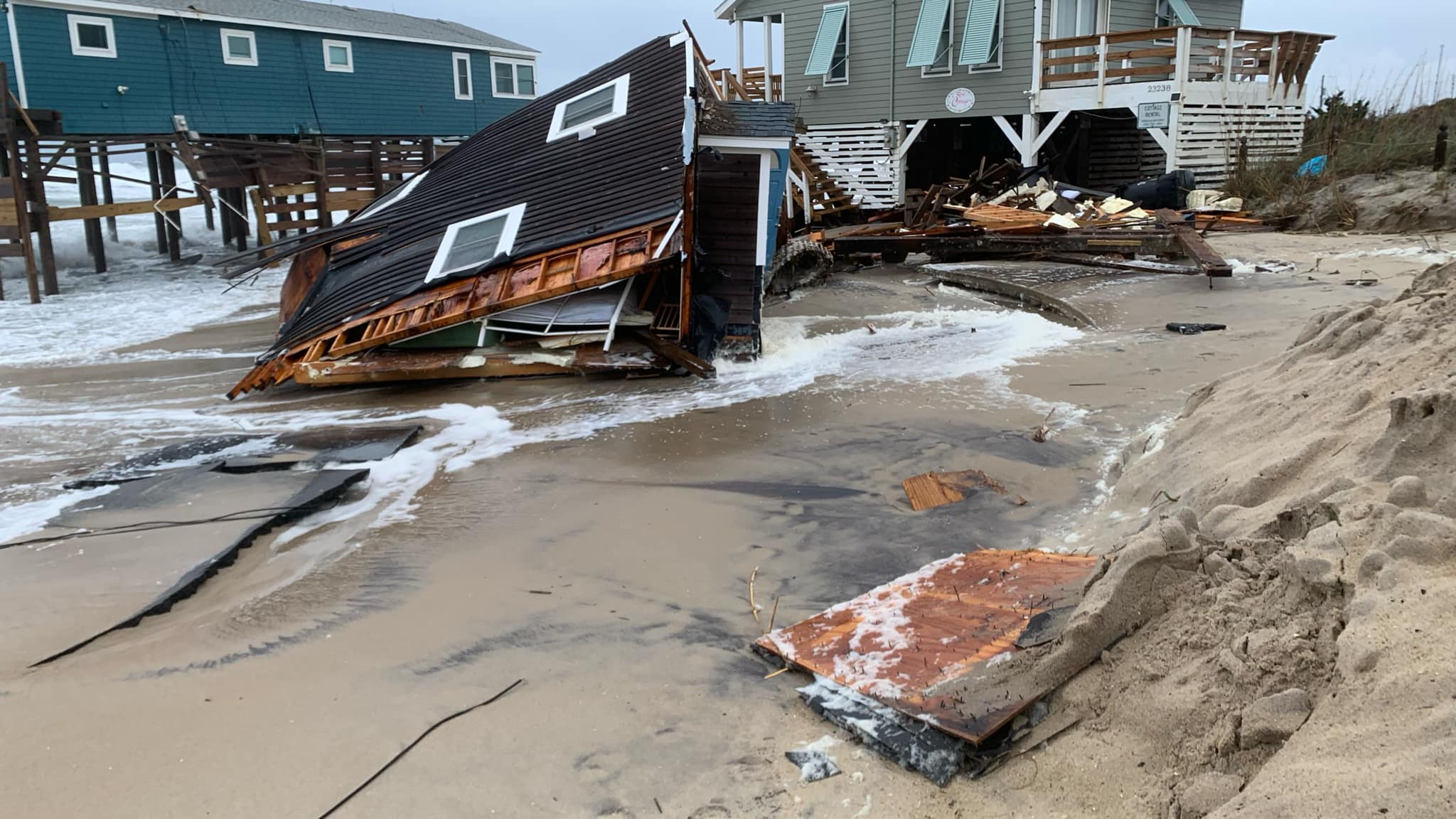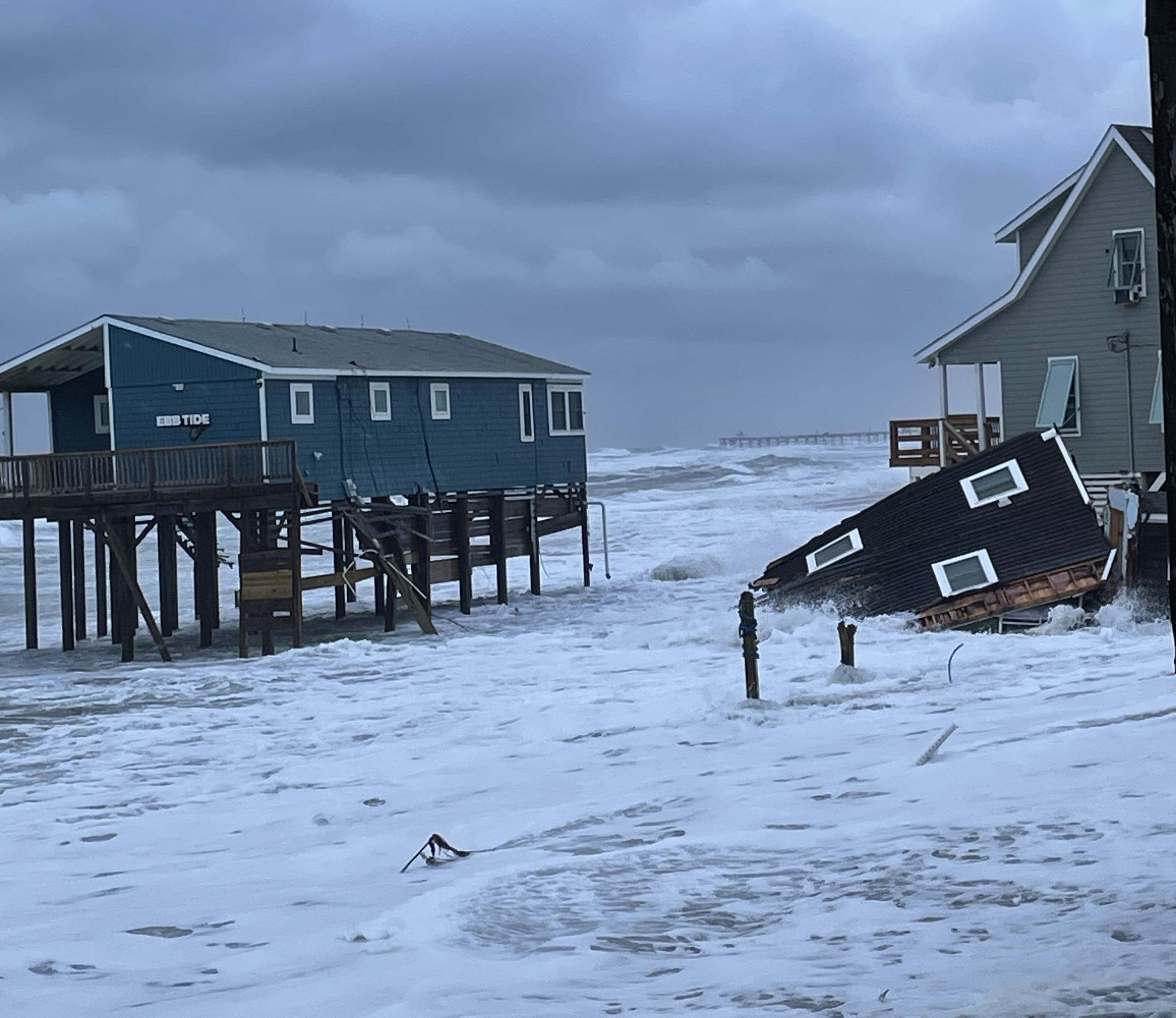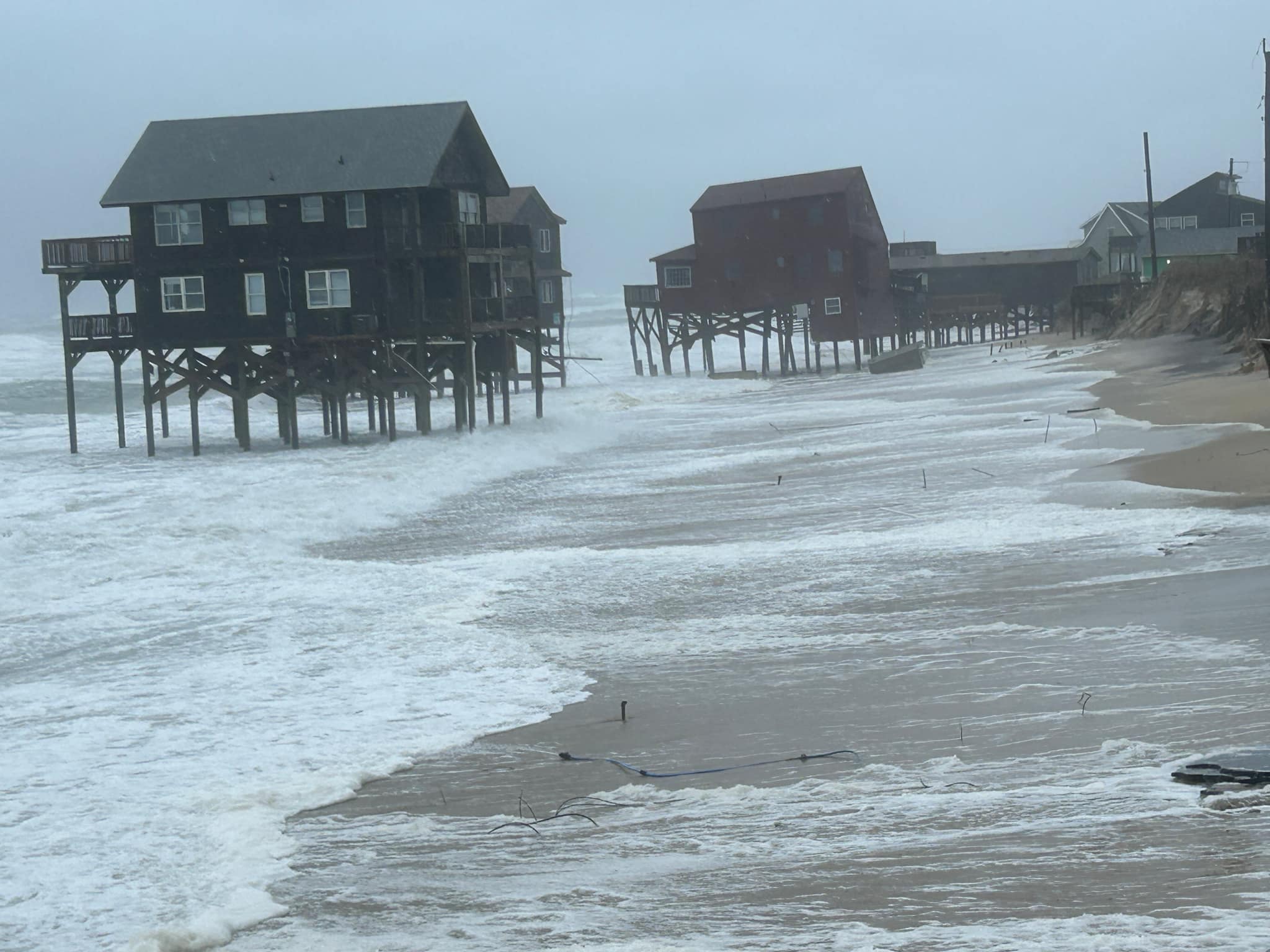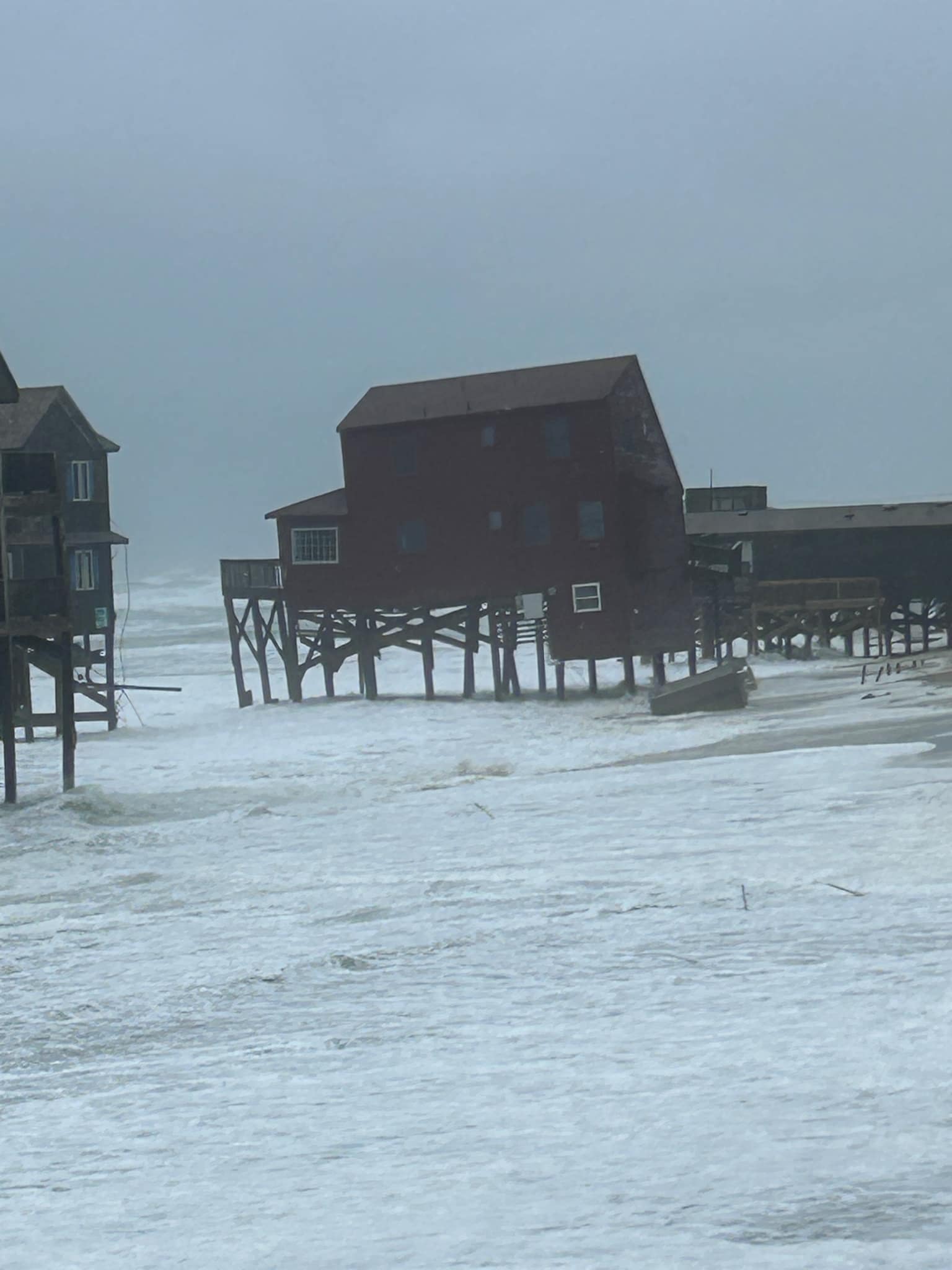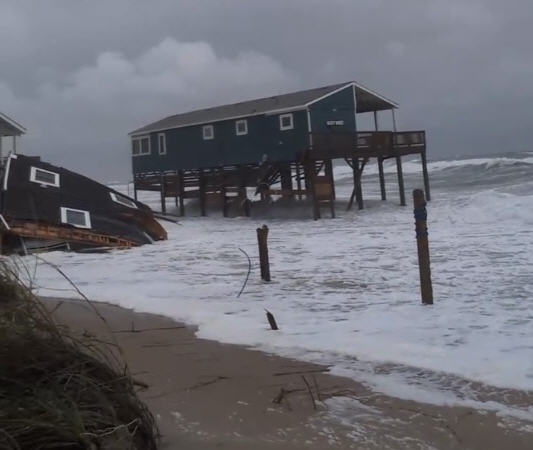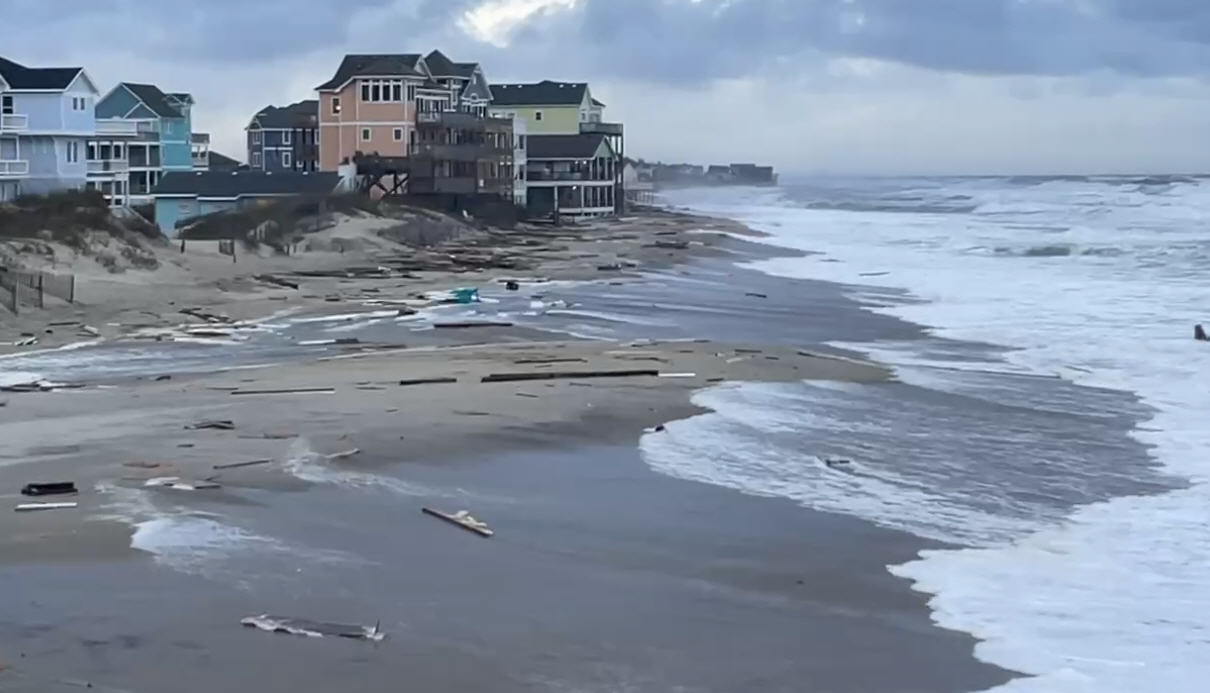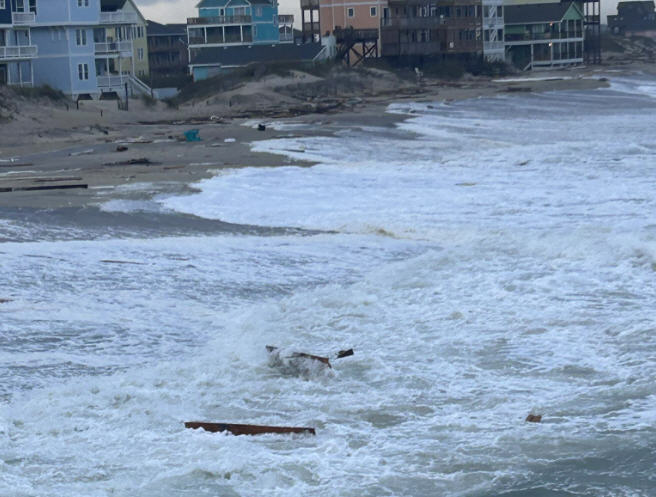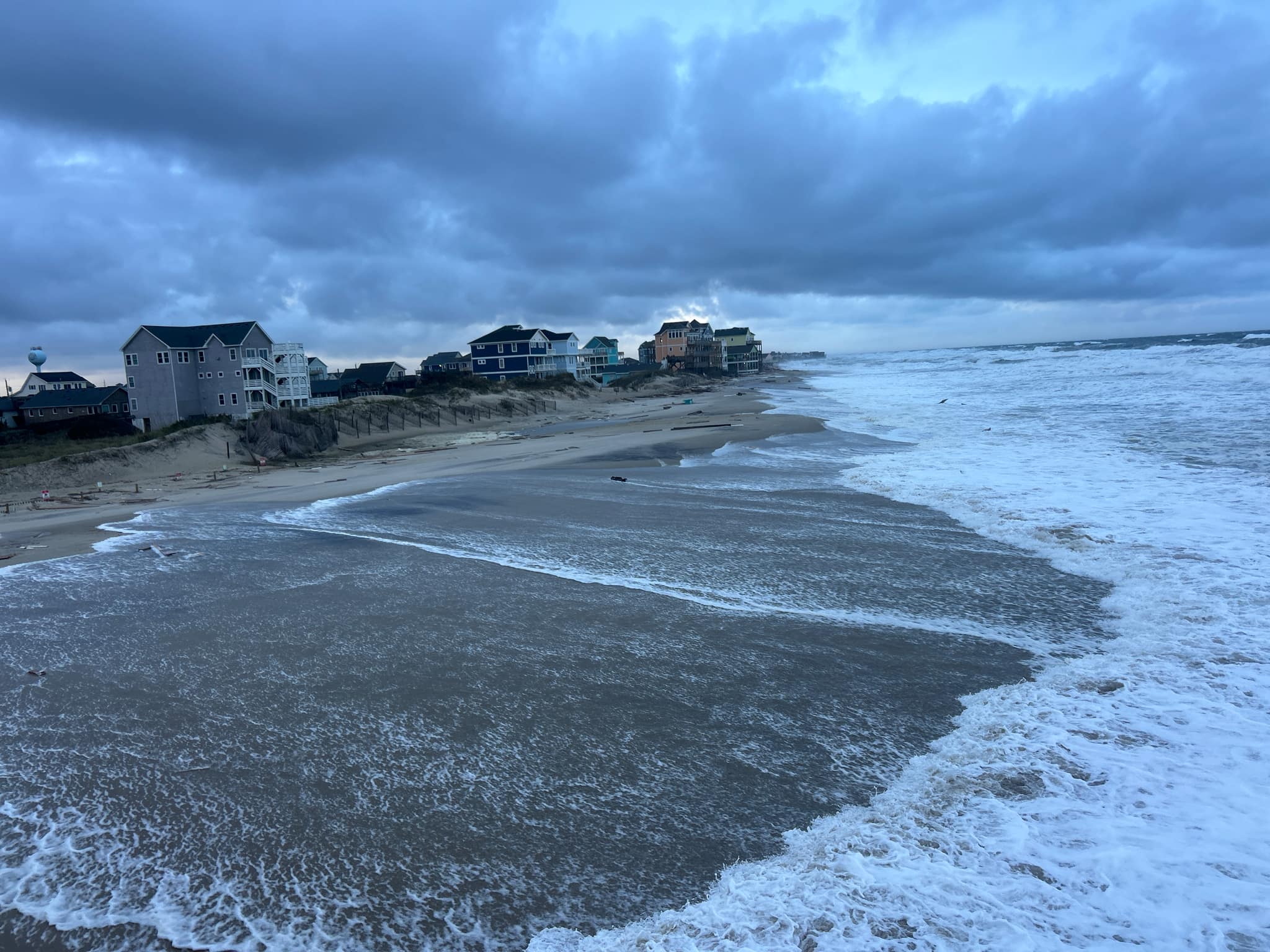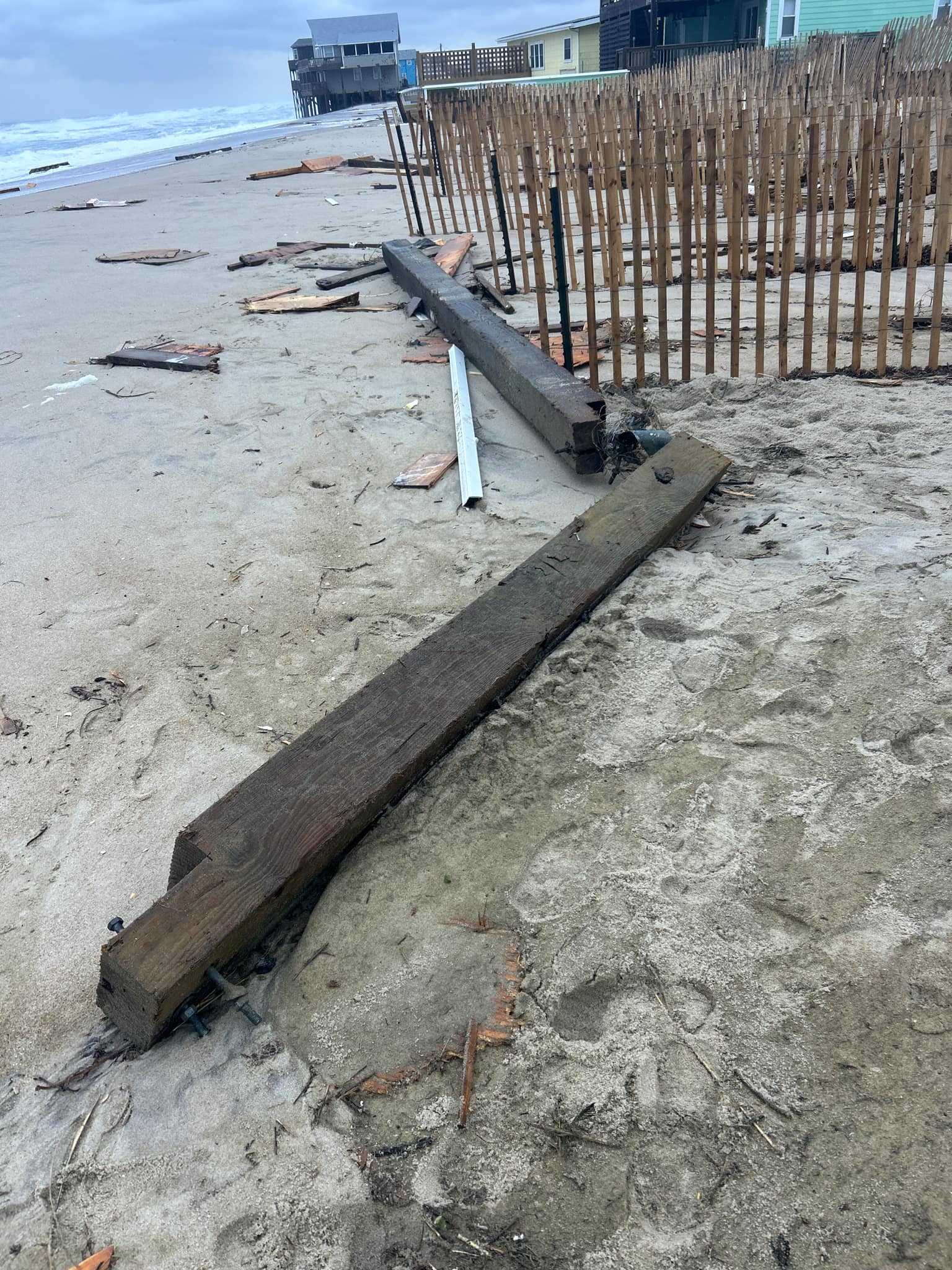Legislative Update: Sales tax redistribution bill gets more traction
While bills bounced between the chambers and the governor in the General Assembly this week, one issue that appeared to be out of play suddenly seems to have found new life – sales tax redistribution.
Two bills that include a total of seven scenarios, all of which would have major negative impacts on the local government budgets in Dare County, seem to have been resurrected, at least in part.
The other common denominator is that both bills call for sales taxes to go to the state, which would determine distribution to the counties.
Senate Bill 369, sponsored by Sen. Harry Brown, R-Onlsow, has been stuck in the Senate Finance Committee since placed there at the end of March. The bill drew a cold reception from the governor.
The bill addresses the current distribution of sales tax, which is based 75 percent on point of sale and 25 percent on population of a county. Brown said when introducing his bill that the current system unfairly penalizes smaller, poorer, more rural counties whose citizens go to more urban areas in larger counties to shop.
Brown’s plan would increase – in some cases double – the amount that some poorer, rural counties would receive, while reducing revenues flowing to more prosperous areas.
Senate Bill 608, sponsored by Sen. Bob Rucho, R-Mecklenburg, and Sen. Bill Rabon, R-Brunswick, has had no public movement since April 9 when it also was assigned to the Senate Finance Committee, chaired by Rucho and Rabon.
But in the background, a variety of scenarios are being studied – none which would benefit Dare County or its towns. Together, they currently receive $20.7 million which is divided by formula and supports a substantial amount of their budgets.
The League of Municipalities opposes any redistribution of the sales tax and has warned members that the redistribution concept could be added into the budget or another bill. At press time, there is no bill or language that has been presented to legislators. The League has advised members that a chosen plan could surface during a Senate Commerce Committee meeting on Tuesday.
Two charts being reviewed by at least some in the Finance Committee and that have not been shared publicly show the financial impacts on counties and cities. One chart is based on no expansion of sales tax base and the other reflects revenues if additional items and services are subject to sales tax.
The options being considered include:
Senate Bill 608 – Modified : Projected revenue assuming: (i) per capita distribution is based on annually updated county-level population projections and point of destination is based on FY 2013-14 data; (ii) 3.5 percent annual growth; (iii) cities receive Article 44 Medicaid City Hold Harmless payments of 18.7 percent, taken from county distributions; (iv) counties retain authority to choose method of distribution to cities. With no expansion of the sales tax base, Dare would lose 15 percent; and towns, 13 percent of their current revenues. With the base expansion, the losses would remain within a percentage point of the no-expansion method.
4-Year 80 percent / 20 percent: Projected revenue assuming: (i) Over four years, phase to a distribution that splits revenue 80 percent per capita and 20 percent point of destination, where per capita is based on updated county-level population projections and point of destination is based on FY 2013-14 data; (ii) counties retain authority to choose method of distribution to cities; (iii) cities receive Article 44 Medicaid City Hold Harmless payments of 18.7 percent, taken from county distributions; and (iv) 3.5 percent annual growth. Dare County would lose 52 percent and towns, 41 to 44 percent. With the expanded tax base, Dare would lose 51 percent; the towns, 39 to 42 percent.
5-Year Per Capita: Projected revenue assuming: (i) Over five years, phase to a 100 percent per capita distribution, where per capita is based on updated county-level population projections; (ii) counties retain authority to choose method of distribution to cities; (iii) cities receive Article 44 Medicaid City Hold Harmless payments of 18.7 percent, taken from county distributions; and (iv) 3.5 percent annual growth. Dare would lose 68 percent; towns 60 to 64 percent. With expanded tax base, Dare would lose 67 percent; the towns 59 to 63 percent.
In all cases, Dare County and its towns would take the biggest hits in the state.
Brown’s bill, S369: http://www.ncleg.net/Sessions/2015/Bills/Senate/PDF/S369v1.pdf
Rucho and Rabon bill, S608: http://www.ncleg.net/Sessions/2015/Bills/Senate/PDF/S608v1.pdf
In public action this week, the General Assembly has overturned Gov. Pat McCrory’s veto of the controversial “ag-gag” bill – House Bill 405 , titled the Property Protection Act – which makes many instances of whistle-blowing by employees into a criminal offense.
Although the initial purpose was to stop journalists and others from obtaining jobs in agriculture so they could report problems within the industry, the language applies to all businesses, including nursing homes, hospitals, day care centers, and schools.
In his veto message, McCrory wrote that he supported the bill’s purpose but asked the General Assembly to add protection for employees who report illegal activities directly and confidentially to the proper authorities.
Journalists aren’t happy with the outcome because, according to the legislation, they will be engaging in criminal activity if they report criminal findings to the public. And advocacy groups such as AARP said that it will discourage reporting abuse, neglect and other problems in hospitals and nursing homes.
The override was easily accomplished with a 33-5 vote. One legislator did not vote and another was absent. It takes a three-fifths majority to over ride a veto.
Sen. Bill Cook, R-Beaufort, Rep. Paul Tine, U-Dare, and Rep. Bob Steinburg, R-Chowan, voted for the legislation and veto override.
McCrory also vetoed SB 2, which, if made into law, would allow magistrates and register of deeds employees to avoid issuing marriage licenses and/or presiding over marriages of same-sex couples if doing so conflicted with their own religious beliefs.
On Monday, June 1, the Senate voted to overturn the veto and sent it to the House for concurrence, but that chamber has not yet taken a vote, although it was placed on the calendar for Wednesday, June 3.
In his veto message, McCrory said that the bill conflicts with the Constitution.
“Whether it is the president, governor, major, a law enforcement officer, or magistrate, no public official who voluntarily swears to support and defend the Constitution and to discharge all duties of their office should be exempt from upholding that oath…” wrote the governor.
Cook, one of the bill’s primary sponsors, voted in favor of the legislation and the veto override. Tine did not cast a vote when it first passed the House due to an excused absence. Steinburg voted for the legislation.
If signed into law, HB 222, may make running for the state’s top court much less expensive. If the governor signs the legislation, voters would decide during the election cycle before a justice’s term is up whether he or she is worth keeping. The N.C. Supreme Court justice’s name would be placed on the ballot without opposition for a straight up or down vote on whether they should remain in office. If yes, then the justice would be a candidate to continue serving during the next election when their term would be completed and could have challengers. If voters give them a thumbs down, they could not run during the next election to maintain their seat.
H465 was presented to the governor on Friday, June 5, for his signature. Although he pledged while campaigning that he would not sign any additional abortion restrictions, he has indicated that he will sign the legislation into law.
Titled the Women and Children’s Protection Act of 2015, the bill was originally intended to strengthen laws related to domestic violence and sexual crimes, including raising the age of statutory rape from 13 and younger to 15 and younger.
But language was added into the bill to add more restrictions to abortions, including increasing the wait time from 24 to 72 hours. It also adds to what doctors must record and report about individual abortions to the North Carolina Department of Health and Human Services, including providing an ultrasound picture to prove that the fetus is not more than 20 weeks old.
Tine voted against the measure. Steinburg and Cook for it.
HB 795, the rewriting of much of the state’s environmental protection laws – SEPA – is now heading for the governor’s signature after both chambers accepted a conference committee version, produced after the House refused to accept the Senate’s amended version. The legislation, if signed into law, removes or weakens many of the environmental protections in place, including expanding acceptable land disturbing activities, fewer environmental impact assessments, and less consideration of cumulative impacts.
Cook, Tine and Steinburg voted for the bill.
SB 160, sponsored by Cook, the shallow draft dredging bill of interest to particularly the coastal region and those using Oregon Inlet, has passed the Senate and is now in the House.
(Sandy Semans is a retired newspaper editor and reporter who now works as a free-lance writer. She lives in Stumpy Point. Her update on the goings-on in this session of the General Assembly will appear weekly in The Island Free Press, usually on Friday.)
PREVIOUSLY PUBLISHED 2015 LEGISLATIVE UPDATES
First bill filed would prohibit condemning property for economic development
Legislative Update: And they are off — sort of
Legislative Update: The gold rush in Raleigh is underway
Legislative Update Most Bills Moving At Snails Pace But One Achieves Warp Speed
Legislative Update: Humor unleashed in the General Assembly
Legislative Update: Lawmakers made hay while the sun was shining
Legislative Update: Bill on dredging causes local turmoil
Legislative Update: 156 new bills filed this week
Legislative Update: Lawmakers keeping busy in Raleigh
Legislative Update: It was raining bills all week
Legislative Update: Bill on dredging causes local turmoil
Legislative Update: Occupancy tax provision is out of dredging bill
Legislative Update: Lawmakers take aim at N.C. Constitution
Legislative Update: More taxes and Constitutional amendments proposed
Legislative Update: Lawmakers racing the clock to get bills moved
Legislative Update: Rushing to meet the ‘crossover’ deadline
Legislative Update: A week of committee work in Raleigh
Legislative update: New taxes for fishermen and new purpose for occupancy taxes
Legislative Update: Bill aims at opportunities for Oregon Inlet Lifesaving Station
Legislative Update: Two days, two vetoes














